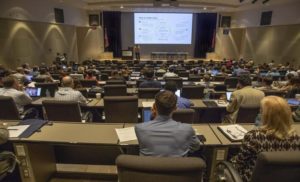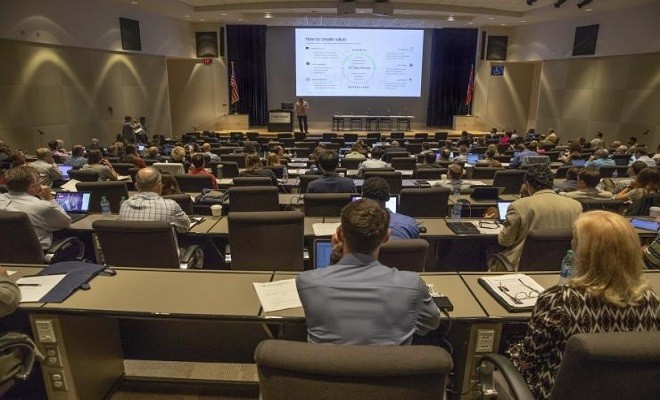Using Internet of Things (IoT) technologies, companies can achieve up to 10 percent increase in efficiency without having to add new infrastructure or use more power.
 Internet of Things (IoT) connects a wide range of devices with smart capabilities and is increasingly seen as a core component of corporate and societal digital transformation.
Internet of Things (IoT) connects a wide range of devices with smart capabilities and is increasingly seen as a core component of corporate and societal digital transformation.
Sustainability or sustainable development – that which meets “the needs of the present without compromising the ability of future generations to meet their own needs,” according to the United Nations Brundtland Report — is now viewed by businesses as mission critical.
According to the World Economic Forum, IoT could become a game-changer for sustainability because of its technology. IoT is about measuring and remotely controlling things that were previously unconnected, reaching people and objects that technology could previously not reach, and in the process, it also supports sustainable development elements.
By using Internet of Things (IoT) technologies, companies can achieve up to 10 percent increase in efficiency without having to add new infrastructure or use more power.
Robert Schmid, chief IoT technologist at Deloitte, shared this real-life business solution and others during the keynote address of the Georgia Institute of Technology’s Center for the Development and Application of Internet of Things Technologies (CDAIT) international conference.
Georgia Tech CDAIT Conference
More than 400 business, academic and government leaders attended the conference held at the Georgia Tech Research Institute in Atlanta on July 18, 2019.
Titled “The Internet of Things for Sustainability is Smart Business,” it explored catalysts to examine some of the key promises and challenges that relate to the application of IoT technologies toward building a sustainable world.
The conference also discussed different aspects of IoT, and how this technology could be used in multiple industries, from energy to transportation, financial services to healthcare, and environment to smart cities.
“We need to be rooted in technology because it’s complex,” said Alain Louchez, managing director of the Georgia Tech CDAIT.
“However, solving related human and business problems, a critical focus at CDAIT, are paramount to a successful IoT deployment. At the end of the day, regardless of the inherent beauty of the technological solution, effectively and efficiently meeting customers’ present and future needs remains the acid test for IoT,” he noted.
CDAIT is working toward promoting IoT’s potential and transformational capabilities through six working groups: IoT Education and Training; IoT Startup Ecosystem; IoT Thought Leadership; IoT Security and Privacy; IoT Standards and Management and IoT Research.










